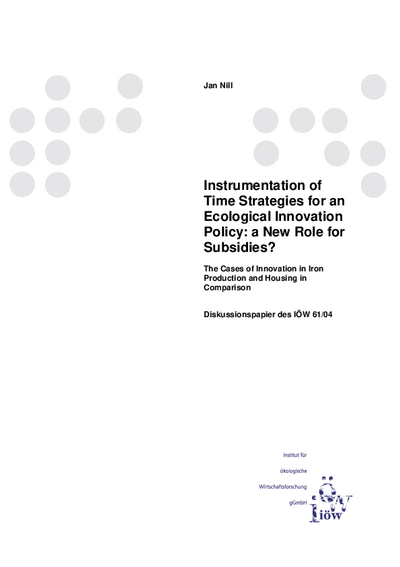Instrumentation of Time Strategies for an Ecological Innovation Policy: a New Role for Subsidies? The Cases of Innovation in Iron Production and Housing in Comparison
Fostering innovation is often seen as important for policies towards sustainable development. Yet, given the ambitious environmental targets implied by sustainability, it might not be sufficient to stimulate incremental innovations alongside well-established techno-economic trajectories. The SUSTIME research project, on which this paper is based, has developed a time strategic policy framework to respond to these challenges, emphasising the role of (techno-economic) windows of opportunities and timing for an appropriate policy.Within such a framework, the paper aims at a reappraisal of the role of (innovation-oriented) subsidies therein. It is based on a critical review of the literature, and, in particular, two empirical case studies of low energy housing and iron and steel production technologies. The paper shows that also for new strategies, the temporary use of such an “old” and in the view of recent policy debates also “oldfashioned” policy instrument, may remain important due to its flexibility, direct dynamic incentives and also due to political advantages. Temporal limits or digressive rates are crucial for success and contribute to avoid some of the well known economic and political pitfalls of subsidy-type instruments, too.



